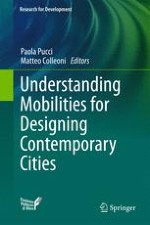2016 | OriginalPaper | Buchkapitel
Temporal Efficiency, Temporal Justice and Urban Mobility
verfasst von : Dietrich Henckel, Susanne Thomaier
Erschienen in: Understanding Mobilities for Designing Contemporary Cities
Aktivieren Sie unsere intelligente Suche, um passende Fachinhalte oder Patente zu finden.
Wählen Sie Textabschnitte aus um mit Künstlicher Intelligenz passenden Patente zu finden. powered by
Markieren Sie Textabschnitte, um KI-gestützt weitere passende Inhalte zu finden. powered by
